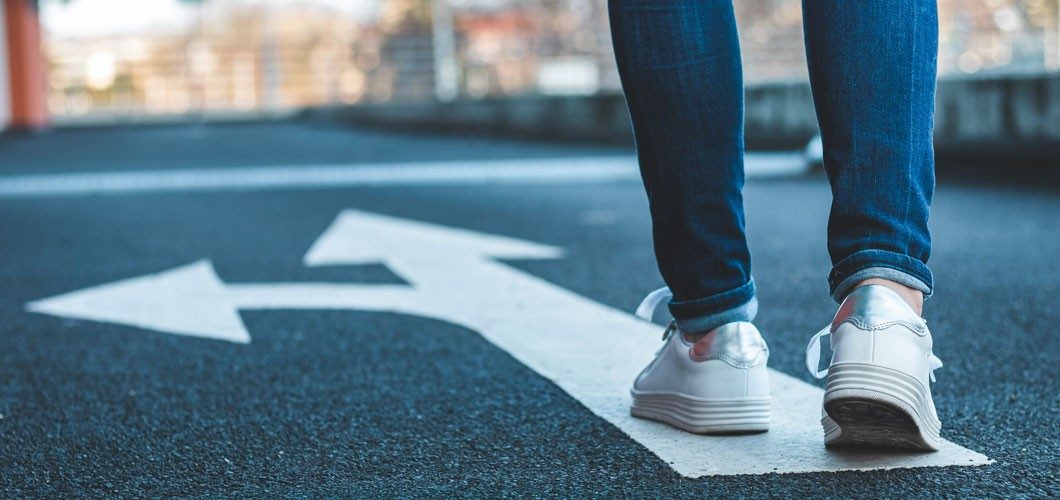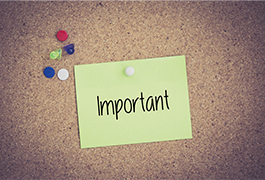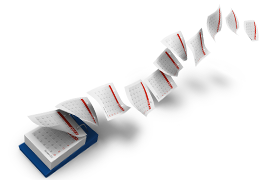Headed to Grad School? Expect the Unexpected

I thought I knew what to expect when I started graduate school.
Having watched the graduate students in the lab I worked in for 3.5 years as an undergrad, I already knew that grad school would be difficult and different from my undergrad experience. I was aware that I’d have to take one to two years of classes, do a year-and-a-half of research, prepare for qualification exams, teach labs, followed by a couple of years of doing research, writing, and presenting. Yet, once I actually got to grad school, I was blindsided by unexpected challenges.
If you are thinking about getting on the graduate school roller coaster and trying to get a peek at grad life before hopping on, be aware that there are unexpected realizations about this next chapter in your academic career that no one can prepare you for. Mine came in the form of these four questions.
1. Why am I so tired?
In college, my schedule looked something like:
9:15 – 10:15 am: Work in lab
10:20 – 11:35 am: Class
11:45 am – 12:15 pm: Eat lunch
12:15 – 2:55 pm: Work in lab
3:00 – 3:55 pm: Another class
4:10 – 5:40 pm: Hang out and catch up with some friends
6:00 – 6:40 pm: Get dinner
7:00 – 9:00 pm: Go to a student group meeting
9:30 pm – 2:00 am (or whenever I finished my homework): Homework
2:30 am: Go to bed
My first quarter of graduate school looked something like:
9:30 – 10:50 am: Class
11:00 am – 12:20 pm: Another class
12:30 – 1:45 pm: Eat lunch while grading pre labs
2:00 – 7:00 pm: Teach lab
7:00 – 8:00 pm: Try to catch the last half of a group meeting for one of the labs I was interested in joining
8:30 – 9:15 pm: Go home and finally eat dinner
9:15 pm: Take a nap on the floor before eventually peeling myself off the floor to go to bed for real
How is it possible to be more tired in less time? While getting more sleep???
I realized that in my undergrad years, my work was spread out in chunks throughout the day. By contrast, in grad school, all my work is concentrated into several straight hours, which makes me way more tired at the end of the day.
Even after you swap out classes for research, and teaching for more research, endless thoughts like, “I should read that paper” and “I should analyze that data tonight instead of at work tomorrow” will nag you.
Now that I’ve joined a lab, finished classes, and started research full-time, I’m still tired, even though I have much more control over my daily schedule.
Because I’m much more personally invested in my research than I was my homework (sorry, professors), I’m very devoted to making sure my project progresses. Sometimes that means getting up earlier than normal so I can start an experiment early, or staying in the lab until 11 p.m. to finish something, or putting in five exhausting hours of standing and pipetting. I still end up collapsing on the couch more nights than I would like. Prepare yourself: You might get used to going to bed at 10 p.m.
If you haven’t already noticed, my grad school schedule has far less socializing, which brings me to question #2:
2. Why is making friends suddenly so hard?
I was so good at making friends in college! I had so many friends! But if I’m good at making friends…where are all my grad school friends?
College has so many opportunities to make friends: roommates, people in your ACS student chapter, ukulele club, breakfast foods club, classmates. You get to have dinner together at the dining center, study together, and play Frisbee together on the quad. Or, if you're me, you peer out of the library with your friends and question who has time to play Frisbee on the quad.
In grad school, however, it is way more likely that you might live more than a 15-minute walk away from campus, only take classes for two or three terms, and not have "Frisbee" amounts of free time, all of which make socializing much harder.
Depending on the vibe of your cohort or department, you may or may not be good friends with your classmates. I became friends with some of my classmates but didn’t have as deep relationships with them as I did with my undergrad classmates.
After I finished taking required classes, I suddenly stopped seeing people who were not in my lab group. I am thankful I joined a group that is social and full of people I like. Most of my meaningful friendships have turned out to be with my lab mates. Keep in mind that if you want to spend time with people outside of your research group, you’ll have to set aside time to do that.
Along with noticing how much harder it is to make friends, you may notice something about your schedule and your immediate candidates for friends that makes you wonder:
3. Why are all my friends chemists?
It’s easy to enclose yourself inside a micelle of friends who understand that grad students work during the summer, how significant getting your first first-author paper is, and what I meant when I used the word “micelle” earlier.
In other words, it’s easy to forget what the nonscience world is like.
My advice to you is to find some friends who are not chemists. There is nothing wrong with having only scientist friends, but we are, in the grand scheme of things, a pretty homogeneous bunch.
Maybe join a university-wide graduate student group. Talking to a philosophy PhD student or a creative writing MFA student is a very different experience than talking to another scientist.
Having a roommate who is not a graduate student is also great. They know the hours you work and tell you, "Wow, you work a lot" even when you feel like you are not working enough. It's a revelation to realize that by any normal person's standards, yes ... you do actually work a lot.
You may also go out on a limb and find friends who -- gasp! -- aren’t students or postdocs at all. I have enjoyed learning about different life stages from the people in my church small group. Even after working for several years, you don’t magically know what you want to do in life. You can be retired and still be super busy and fulfilled. Getting to know people outside of academia has taught me lessons I couldn’t have learned from my grad student and postdoc peers.
To meet people, you can join a community choir or orchestra, volunteer at an animal shelter, take an improv class, or join a recreational sports league.
All of these suggestions beg another question I’ve asked myself:
4. What am I going to do when I’m not at work?
For a while, I went into the lab every weekend because when I sat at home, I found myself thinking, “Might as well work ... it’s not like I have anything else to do.” The pressure in grad school to spend all of your time on research is very real and can be intense.
That is not good! Do not do that! If you do not have a hobby, PLEASE GET YOURSELF A HOBBY.
(Also, please talk about your hobby to dispel the myth that in grad school, everyone’s hobby is just grad school.)
In the past couple of years, I have started collecting vinyl. I’ve also been emotionally destroyed at an absurd number of sad indie rock concerts (not sure if that counts as a hobby).
I’ve also started writing for fun again. Turning off the chemistry part of my brain but still feeling productive is nice. And it gives me something to look forward to at home besides watching TV or sleeping.
You can learn to windsurf, rock climb, or knit (I’ve heard knitting is a wonderful activity to stay awake in group meeting!). Read more books. Paint. Grow houseplants. Get into baking stuff from The Great British Bake Off (and then bring your creations in for your lab mates to eat, thank you very much!)
For most people, graduate school takes up most of your twenties. Don’t waste your prime years being lonely and living in the lab.
I am a little (okay, a lot) afraid of riding roller coasters. However, as with grad school, asking myself, “Why did I decide to do this?” provides an opportunity for me to face my fears, grow as a person, and maybe eventually fully enjoy the experience.
Now that you have a better idea of what to expect on the grad school roller-coaster, hopefully getting a peek into the unknown makes the scary parts a little less scary, shows you where to smile for the picture, and, fingers crossed, doesn’t make you decide to get out of line!





